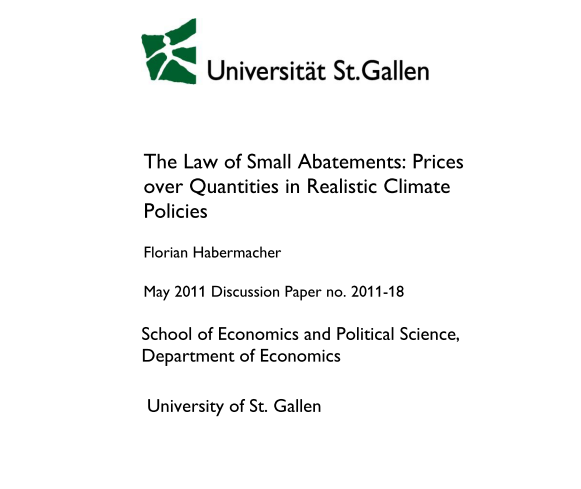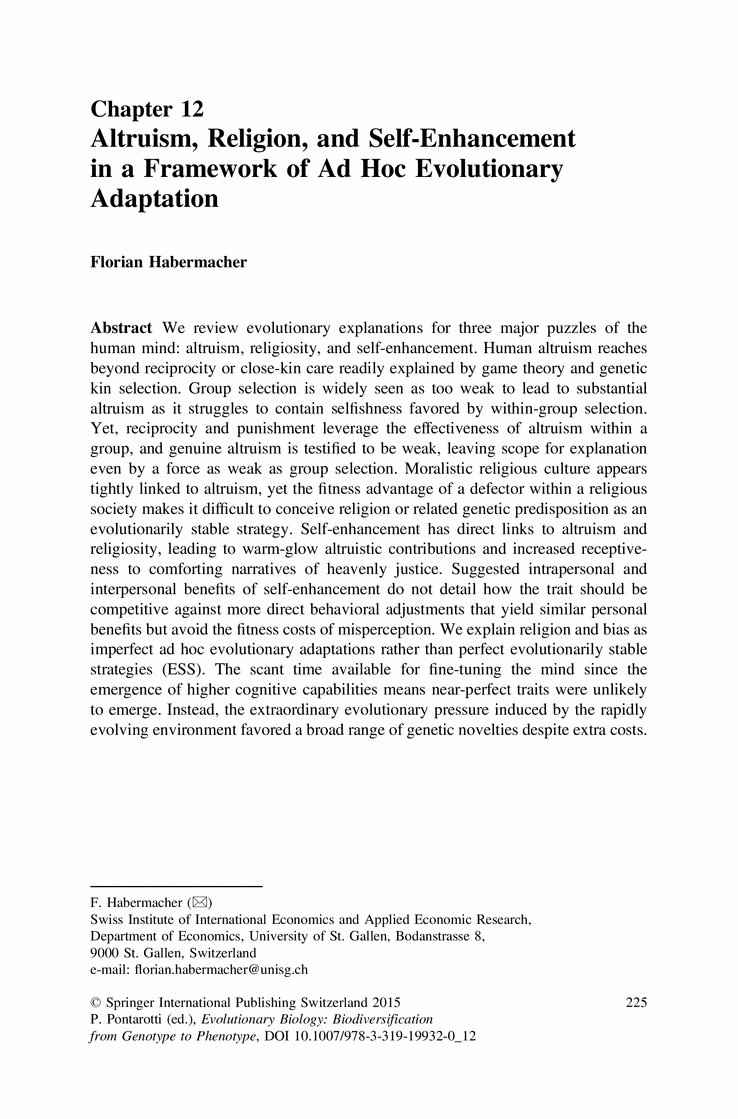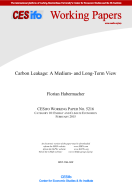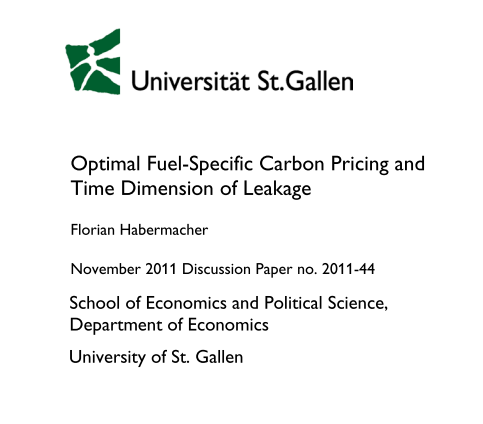
The Law of Small Abatements: Prices over Quantities in Realistic Climate Policies
University of St. Gallen Working Paper 1118
Florian Habermacher
A fundamental question of high practical relevance for climate policy design is whether price controls such as CO2 taxes, or quantity restrictions such as emission quotas should be preferred. I show that as the reach of climate policies is limited in terms of either suboptimally low reduction targets or the policy’s extent over only parts of the world, the likelihood of price measures to be more advantageous in terms of minimizing uncertainty related welfare losses increases. The increase of the relative advantage of the price mechanisms over quantity measures may be more than proportional to the regional limitedness of the policy, suggesting that even for relatively important climate coalitions the identified factor implies a clear advantage for price measures. This analysis of the prices vs. quantities question is closer to so far on a high political level seriously discussed climate policies, not to speak of already implemented local or regional climate policies, than previous theoretical literature addressing the issue, which typically relied on the assumption of first bests (i.e. global) policies. Illustrating the main thought of the analysis, I explain why in the example of policies with an extent corresponding to the current Kyoto mechanism, the simple theoretical weighting of the price vs. the quantity approach seems to favor price mechanisms independently of the exact form of the global abatement cost and benefit curves.
JEL-Codes: Q54, Q52, D81, Q40.
Keywords: Prices versus quantities, greenhouse gas tax, emission quotas, tradable permits, uncertainty, emission abatement costs, climate change costs, emission abatement benefits, regional climate policy, unilateral climate policy.
Related
-
Altruism, Religion and Self-Enhancement in a Framework of Ad-Hoc Evolutionary Adaptation altruism, cooperation, evolutionary biology, religion, self-serving bias
-
Carbon Leakage: A Medium- and Long-Term View climate, economics, energy, leakage, resources
-
Optimal Fuel-Specific Carbon Pricing and Time Dimension of Leakage climate, economics, energy, leakage, resources




